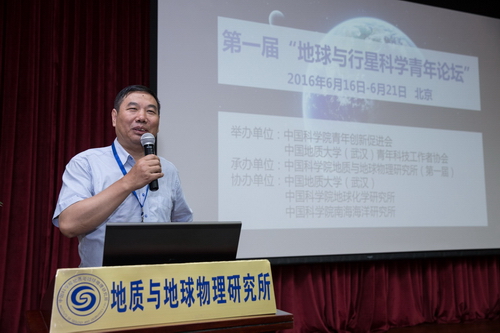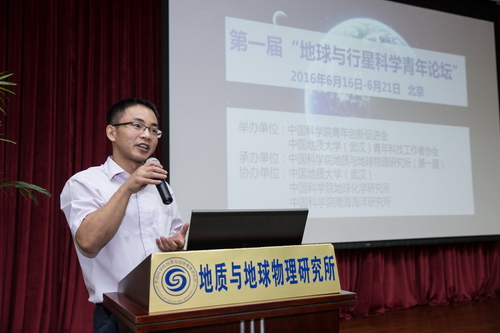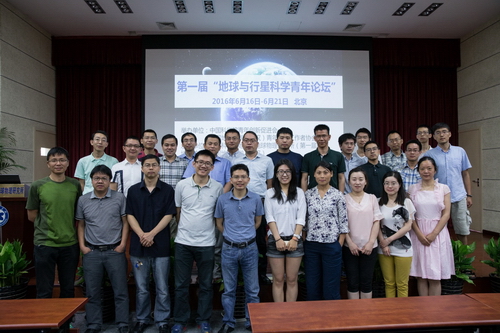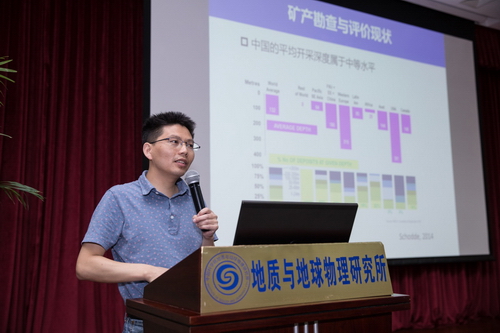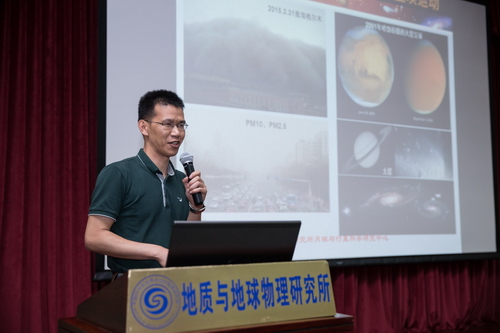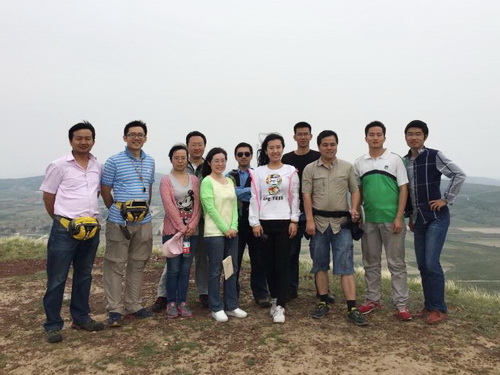|
News Center
|
Top News
The First "Young Scientist Workshop on Earth and Planetary Sciences" Hosts by IGG To facilitate academic exchange and cooperation among young scientists in Earth and planetary sciences, and to promote interdisciplinary integration, the Youth Innovation Promotion Association of Chinese Academy of Sciences (YIPACAS) and Young Scientist Association of China University of Geosciences (Wuhan) (YSACUG) sponsored “Young Scientist Workshop on Earth and Planetary Sciences”. The first workshop was hosted by the Institute of Geology and Geophysics, Chinese Academy of Sciences (IGGCAS) on June 16th-20th, 2016. More than 30 researchers from the Chinese Academy of Sciences and China University of Geosciences (CUG, Wuhan) attended the workshop. On June 17th, Prof. Zhang Jinhai, the group leader of YIPA at IGGCAS, hosted the opening ceremony of the workshop. Prof. Wu Fuyuan, academician of the Chinese Academy of Sciences, and Mr. Liu Heng, vice president of Science and Technology Development Institute at CUG delivered the opening remarks on behalf of IGGCAS and CUG, respectively. Prof. Wu pointed out that young scientists, who are the backbone of scientific research, should break the discipline barriers, communicate and cooperate each other, and actively promote the interdisciplinary development of Earth and planetary sciences. Mr. Liu stressed that YSACUG will establish a long-term cooperation with YIPACAS, promoting academic exchange and cooperation among young scientists in our country. During the workshop, 12 young scientists from IGGCAS, CUG, the Institute of Geochemistry (IGCAS) and South China Sea Institute of Oceanology (SCSIO) gave presentations. The talks were presided over by Prof. Yang Wei from IGGCAS, Prof. Zuo Renguang from CUG and Prof. Li Xiongyao from IGCAS. The workshop attracted dozens of teachers and students from IGGCAS, who joined discussions and exchanges. On June 18th to 20th, more than 10 researchers attended a field trip to the North China craton (Beijing - Datong - Fanshi - Beijing), visiting the late Archean (2.5 Ga) gneisses, the early Proterozoic (1.9-1.8 Ga) ultra-high temperature and pressure granulites, the basic dike swarms and the Cenozoic volcanic rocks. Prof. Peng Peng from IGGCAS guided the field investigation. The participants were involved in in-depth discussion on the formation and evolution of the early continental crust of the North China craton, reconstruction of the supercontinent and decratonization.
Prof. Wu Fuyuan(Photo:REN Hui)
Mr. Liu Heng(Photo:REN Hui) The workshop participants(Photo:REN Hui)
Prof. Zuo Renguang(Photo:REN Hui)
Prof. Li Xiongyao(Photo:REN Hui)
The field participants at Jinshan volcano, Datong(Photo:IGG)
|
-
SIMSSecondary Ion Mass Spectrometer Laboratory
-
MC-ICPMSMultiple-collector ICPMS Laboratory
-
EM & TEMElectron Microprobe and Transmission Electron Microscope Laboratory
-
SISolid Isotope Laboratory
-
StIStable Isotope Laboratory
-
RMPARock-Mineral Preparation and Analysis
-
AAH40Ar/39Ar & (U-Th)/He Laboratory
-
EMLElectron Microscopy Laboratory
-
USCLUranium Series Chronology Laboratory
-
SASeismic Array Laboratory
-
SEELaboratory of Space Environment Exploration Laboratory
-
PGPaleomagnetism and Geochronology Laboratory
-
BioMNSFrance-China Bio-mineralization and Nano-structure Laboratory

